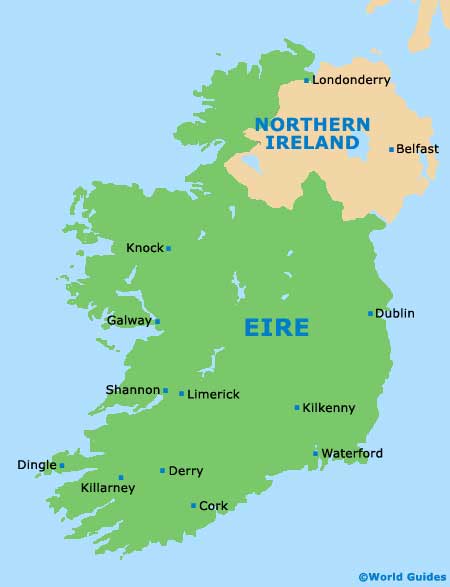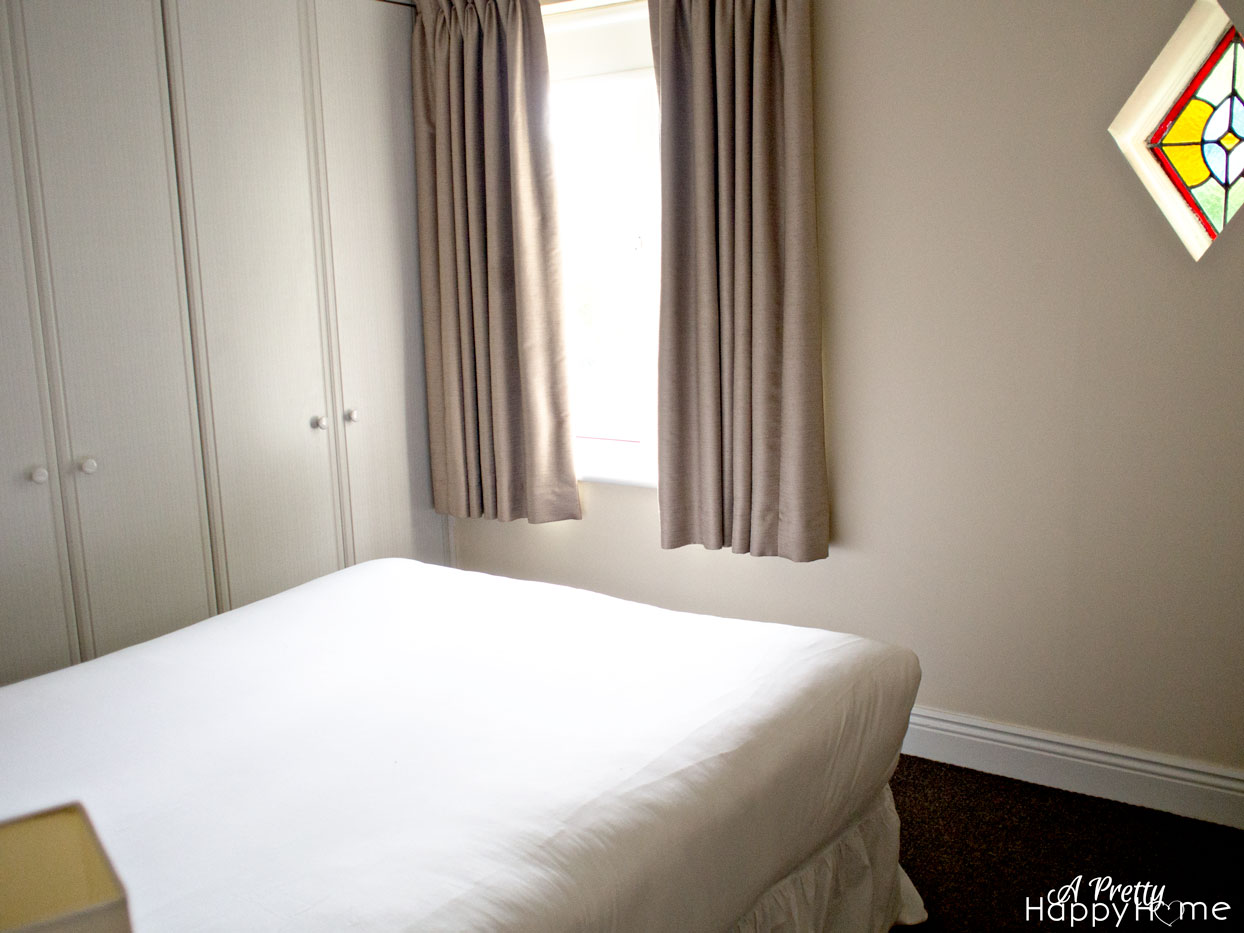
Living in Ireland: When to Move Back to the U.S.
This was a hard article to write.
If you’ve been living in Ireland, how do you know when it’s time to move back home? In our case, home is the United States.
If you are an American citizen who moved to Ireland for work, then you probably entered Ireland in one of two ways: on a contract or as a permanent hire.
If you were on a contract with a set end-date, then you know when you’ll be leaving.
If you entered Ireland as a permanent hire, then your end date (if there is one) is more ambiguous and something you’ll have to determine for yourself.
My husband works for a large American company that transferred him from the U.S. to Ireland. He accepted the job as a permanent hire and entered Ireland on a critical skills permit. I was in Ireland on a non-working, spousal visa. Our kids (ages 6 and 9 at the time) didn’t need any paperwork other than a passport to enter the country.
We were committed to living in Ireland for at least two years, but after that was a big question mark.
Two years might seem like a long time. Trust me. There were some harsh winter months that felt really long, but two years does fly by.
How do you know when it’s time to leave? I can’t answer that question for you, but I can tell you some factors we considered.
Please keep in mind, my perspective on the below topics is that of an expat living ‘permanently’ in Ireland and not on a short-term employment contract. Some of the factors in our decision may not be relevant in the future as conditions in Ireland change. Also, every situation is different, so this is all just food for thought. Did I cover enough disclaimers? Ha! Alright, let’s get into it.
Taxes
There is no way to sugarcoat the reality of living in Ireland. It’s expensive. It’s expensive if you are Irish and it’s especially expensive if you are an expat.
The biggest adjustment is in regard to taxes. You’re looking at an approximate effective income tax rate of 50%. Some companies will try to equalize compensation for their expat employees to minimize the tax hit, but whether or not that works out for you is difficult to say.
There are also some Irish tax breaks for Americans that help offset things, but you have to pay the taxes upfront and hope to recoup the money later. This is where a good tax accountant is going to be crucial. You need someone who understands Irish taxes and U.S. taxes because you have to file tax returns in both countries.
Housing
Now, high taxes wouldn’t be such a big deal if housing costs were low in Dublin.
They aren’t. Not by a long shot.
As I write this, there has been a housing shortage in the greater Dublin area for quite awhile. Not enough houses to meet demand, so rents go up. And Up! And UP!
As of November 2017, average rent in Dublin was UP 12.3% year-over-year according to the Irish Independent. Depending on where you live in Dublin, the AVERAGE rent at that time was between €1,551 and €1,955. That’s the average though and if you are coming in new to the country, you’re not paying the lowest rent out there.
If you are living in a city such as Galway, Cork, Limerick, etc. housing costs are lower.
For many Americans, it’s not only adjusting to high rent, but high rent for a small space. If the home has received cosmetic updates, that’s a bonus!
When we moved to Ireland in 2016 we knew people who attached hand-written letters with their rental applications explaining why they’d be a good renter.
When we moved out in 2018, the new renters moved into our house the next morning!
You might be wondering, couldn’t we buy a house? Yes, It’s possible after you’ve established a record of credit in Ireland. We were very cautious and needed to do more research on this topic first. This was because any money we took out of our U.S. bank accounts and transferred/spent in Ireland was counted as taxable income in Ireland. YIKES! We needed to find out if this tax situation would exist if we tried to bring money into the country for the express purpose of buying a home.
Plus, buying a home is a long-term investment and we hadn’t decided if we wanted to be in Ireland long-term.
Education
We ended up loving the Irish primary school our kids were enrolled in, but it was private, so we had to pay tuition. In the U.S., our kids attended public school.
Americans are at a disadvantage entering Ireland with school-age children. Ireland has an open enrollment public school system and many Irish kids have been on waiting lists for schools (public and private) since birth. Plus, we aren’t Catholic and many schools still prioritize Catholic kids over non-Catholic kids on waiting lists.
I wrote more about my experience with the primary school system in Ireland here.
I want to be clear it was our choice to send our kids to private school. The benefits of doing so for our particular situation outweighed the financial costs. However, it was still a cost to factor into our decision of how long to stay in Ireland.
Retirement and Benefits
In our experience, the pension system in Ireland is fantastic. We saved a significant amount of money for retirement over the course of two years. This pension is savings my husband can draw on at some point in the future, regardless of where we live. I can’t speak to how easy it is to access that money, but we know it is there.
Time off and vacation is valued in Ireland, as it is in Europe in general. We really liked this about Ireland and it was interesting to see this attitude in action. My husband even commented that lunch time in Ireland was very important. His Irish coworkers would gather together everyday in the lunchroom to eat, chat and joke together. They valued this time to build camaraderie, whereas in the U.S. it’s not unusual to eat lunch alone at your desk.
If you’re an American in Ireland, you’ll probably have private health insurance. As far as I can tell, private insurance just bumps you to the front of the line for certain hospital procedures and allows you to use private hospitals instead of public ones.
However, there are no private hospitals for kids in the Dublin area. Our daughter went to a public children’s hospital for a broken wrist. We never saw a bill. We never even saw a statement. Can you imagine?
The wrist situation wasn’t awesome, but not seeing a bill was pretty great! I wrote more about what I learned from that situation and how I should have responded to a pediatric medical emergency here.
If you are relatively healthy and in Ireland for only a short time, you probably won’t feel the benefits of Ireland’s healthcare system in your day-to-day life. If you are there longterm, I’m sure that would be different.
Quality of Life
We loved our quality of life in Ireland. We had plenty of cultural and recreation opportunities close-at-hand. The restaurant scene was more diverse than you’d imagine and oh, so tasty. The pub culture, if you were into that, was lively.
We made friends and felt very connected to the community. It surprised me the number of times I would run into someone I knew. Or someone would say, “I saw your husband running to work!” Dublin is a very small place and the cities outside of Dublin are even smaller.
We fully embraced the urban lifestyle of not having a car. We walked or took public transportation everywhere – even to school! Yes, it was sometimes a drag, but overall, it was so nice to have sidewalks everywhere!
The outdoor recreation opportunities in Ireland are fantastic. One of my favorite parts of living in South Dublin was being close to the Irish Sea. There were also plenty of hiking options close to us in the Wicklow Mountains.
We fully took advantage of cheap flights around Europe to travel while we lived in Ireland. I never felt bad about spending ‘just a few days’ in another country because our time and cost to get there was low, relatively speaking.
Weather
I hate to talk stereotypes, but weather ALWAYS comes up when someone talks about Ireland.
Here’s the deal. When the weather is nice in Ireland, it’s really, really nice. You could live there forever. When the weather is dreary, windy and rainy (and this could be any month of the year), it makes you want to pack your bags – stat!
The Irish climate was not a deal breaker for us, but we did sometimes feel like we were on a weather rollercoaster.
Situation at Home
We haven’t lived close to family for several years, but your family situation does factor into how long you might want to live in Ireland.
When you move to Ireland, you’re leaving behind your support system. For many people, this support system is family. Particularly if you have young children, this can be a hard adjustment. If you are leaving behind aging parents or others who rely on you, you might feel that burden on a day-to-day basis.
I learned pretty quickly that I had to build a village (aka my support system) right away. This meant trusting people and asking for help. Much to my surprise and delight, the Irish folks we met had the most generous souls. Our neighbors offered, more than once, to help out when I had a sick child. People offered us rides when they knew we didn’t have a car. We were even invited over to Christmas dinner by our landlord. The generosity of spirit of the locals made us feel welcome and at home.
The hardest part of our family situation ended up being our distance from my husband’s work combined with his office hours and the sleep schedule of our kids. His company’s office hours ended at 6 p.m. and combined with regular meetings/conference calls with coworkers back in the U.S., he was often getting home after our youngest was asleep. Or he would come home and then still have to do an 8 or 9 p.m. conference call with someone on the East Coast because they were 5 hours behind us in time zones. This was no one’s fault – just a quirk of circumstances. We made the best of it, but we never did work this one out to our satisfaction.
Our Decision
We ultimately decided there were too many disadvantages – mainly financial – to being an American living longterm in Ireland.
My husband would have been happy to stay if the financial piece (i.e. taxes) could have been worked out.
I found my heart being tugged toward my home country in ways I never expected. In my mind, it wasn’t that one country was better or worse. It’s just that after two years I still very much identified “home” as America. This experience has given me an entirely new appreciation for all the people who have immigrated to a different country and made it their home. I have a taste of how hard that transition might have been and my respect has grown tenfold for the efforts they made to make a new life in a new country.
Even though we chose to leave Ireland, we do not regret our decision to move to Ireland in the first place. Not one bit. Even knowing what we know now, we’d still make the decision to go. I know that might sound crazy, but this was the opportunity of a lifetime.
In fact, I’d encourage you all to go and live in a foreign country.
While my husband and I do have to think practically about retirement, taxes and our children’s education, amassing financial wealth is not our primary goal in life. The experiences we had, the friendships we made, the personal growth we experienced, the things we learned about the world – those things are precious and invaluable.
At the end of the day, we are happy we moved to Ireland. We are happy we moved back home to the U.S. too.
P.S. If you are thinking about moving abroad, InterNations keeps a list of the best and worst countries for expats. Take it with a grain of salt, but Ireland doesn’t rank very high.
If you want to know more about our experience of moving to and living in Ireland, check out these posts:
Living in Ireland: Surviving a Snowstorm
Living in Ireland: Life Without a Car
Living in Ireland: Inside My Kitchen
Living in Ireland: Christmas in Retail 2017
Living in Ireland: Storm Ophelia
Living in Ireland: That Time a Tree Came Down
Living in Ireland: Pediatric Emergency Medicine
Living in Ireland: Back After A Month in the United States
Living in Ireland: As Seen On My Commute
Living in Ireland: A Trip to the Hardware Store
Living in Ireland: Spring Flowers In Our Yard
Living in Ireland: Grocery Shopping
Living in Ireland: What to See my Hot Press?
Living in Ireland: Merry Christmas 2016
Living in Ireland: Christmas in Retail
Living in Ireland: Exploring Our New Country
Moving to Ireland: Grocery Item Look Alikes
Moving to Ireland: Primary School 101
Moving to Ireland: First Week of School
Moving to Ireland: A Day Out and About
Moving to Ireland: The Great Purge
Moving to Ireland: Human Kindness is Overflowing
Moving to Ireland: House Viewing #1
Moving to Ireland: House Viewing #2
Moving to Ireland: House Viewing #3
Moving to Ireland: Temp House First Floor
Moving to Ireland: Temp House Second Floor
Thinking about visiting Ireland? Read on!
Visiting Ireland: Book of Kells
Visiting Ireland: Kilmainham Gaol Museum
Visiting Ireland: St. Patrick’s Day
The Cliffs of Moher and the Aran Islands with Kids
Our Favorite Irish Castle Tour with Kids
Kissing the Blarney Stone and Blarney Castle












2 Comments
Matt
I have to say, I am sorry to hear you left Ireland. I just arrived, Day 23, and I have to say the way that you illustrated day-to-day life in Ireland helped to convince me to take the plunge. I am also on a “permanent” assignment, and expect our return decision will either center around our son (now 3) who we won’t want to move late into his school career, or our aging parents. Since you are ahead of me, I look forward to hearing about the re-integration, and will refer to it when our time comes.
Thank you.
annisa
Oh my goodness! Congratulations! This will be the opportunity of a lifetime for you. It’s real life, so I know it’s not all glamorous, but I hope you will enjoy Ireland as much as we did.